Running a small business is no small feat, and the last thing you need to worry about is a pest problem. From rodents to insects, pests can wreak havoc on your livelihood. That’s why pest control is crucial for small businesses. In this article, we’ll explore the various challenges that small businesses face when it comes to pests and provide practical solutions to keep your establishment pest-free. So, let’s roll up our sleeves and tackle those unwanted visitors head-on!
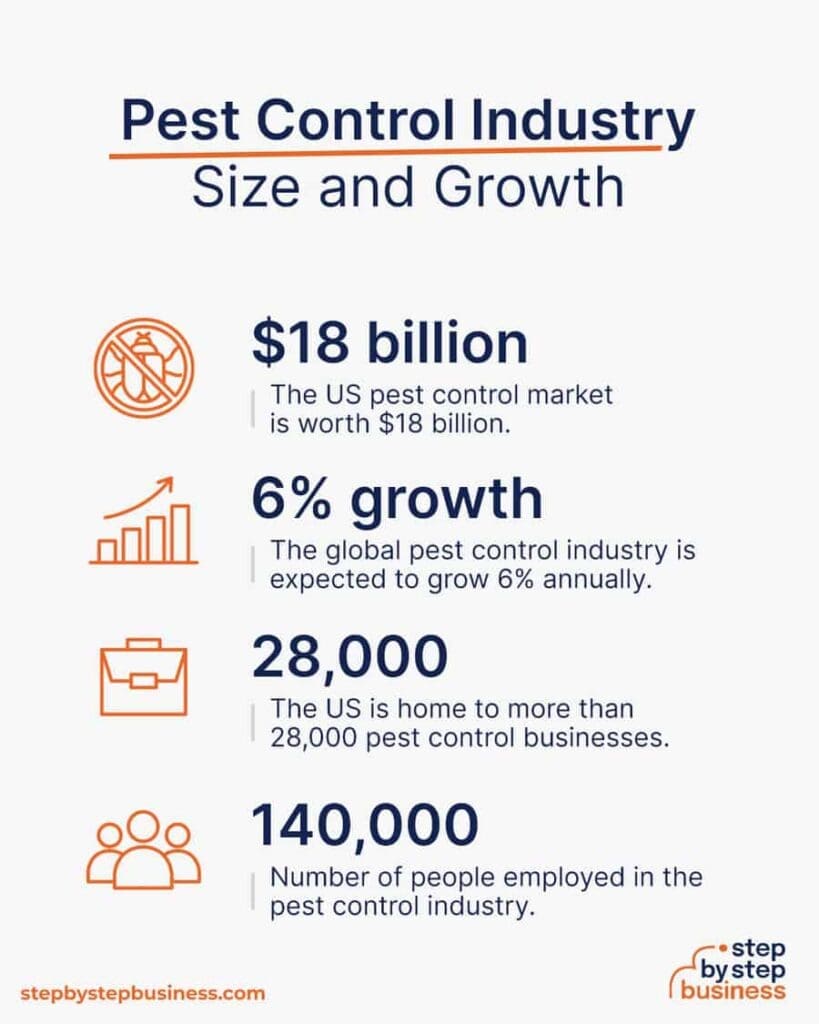
Common pests in small businesses
Rodents
Rodents, such as mice and rats, are common pests that can be found in small businesses. They are known to chew on electrical wires, causing potential fire hazards. Additionally, rodents can contaminate food and spread diseases through their urine and droppings.
Cockroaches
Cockroaches are another common pest that can infest small businesses. They are attracted to areas with food and water, making restaurants and cafes particularly vulnerable. Cockroaches can carry bacteria, viruses, and parasites, posing a health risk to employees and customers.
Ants
Ants are small pests that can be a nuisance in small businesses. They can contaminate food and disrupt work environments. While most ants are harmless, some species, like carpenter ants, can cause structural damage to your property.
Termites
Termites are silent destroyers that can cause extensive damage to small businesses. They feed on wood and other cellulose materials, compromising the structural integrity of the building. Regular inspections and preventative measures are crucial to protect your business from termite infestations.
Flies
Flies are a common annoyance in small businesses, especially in food establishments. They can transmit diseases and contaminate food and surfaces. Proper sanitation and preventative measures are important to prevent fly infestations.
Bed bugs
Bed bugs are small insects that feed on human blood. They can infest small businesses, particularly those in the hospitality industry. Bed bugs are notorious for their bites, which can cause itching and discomfort. Professional extermination may be necessary to eliminate a bed bug infestation completely.
Spiders
While most spiders are harmless, some species can be venomous and pose a danger to employees and customers. Spiders can also create an unsightly appearance in your small business. Regular pest control measures can help keep spider populations under control.
Moths
Moths are known for their ability to damage fabrics, such as clothing and upholstery. Small businesses that store inventory or use textiles in their operations may be at risk of moth infestations. Proper storage and regular inspections are important to prevent moth damage.
Bees and wasps
Bees and wasps can pose a significant threat to small businesses, especially if employees or customers are allergic to their stings. Their nests can be found in hidden areas, such as wall voids or attics. Professional pest control services are recommended to safely remove bee and wasp nests.
Importance of pest control for small businesses
Health and safety regulations
Maintaining a pest-free environment is crucial for small businesses to comply with health and safety regulations. Health departments may conduct inspections and impose fines or closure if pests are present. Regular pest control measures can help businesses avoid these risks and maintain a safe workplace.
Protecting reputation
Pests can damage a small business’s reputation and lead to negative reviews or word-of-mouth publicity. Customers may be hesitant to visit or continue patronizing a business that has a pest problem. Implementing effective pest control measures shows a commitment to cleanliness and customer satisfaction.
Preventing property damage
Pests like rodents and termites can cause significant property damage, leading to costly repairs and renovations. rodents can chew through electrical wires, causing potential fire hazards, while termites can weaken the structure of a building. Investing in pest control can help businesses avoid these costly damages.
Maintaining cleanliness
Pests are often attracted to areas with poor sanitation and hygiene. By implementing regular pest control measures, small businesses can ensure that their premises remain clean and free from pest infestations. This promotes a hygienic and inviting environment for employees and customers.
Increased productivity
A pest-free workplace can contribute to increased productivity among employees. When pests are present, employees may be distracted, uncomfortable, or even absent due to health concerns. By proactively addressing pest control, businesses can create a conducive environment for productivity and employee well-being.
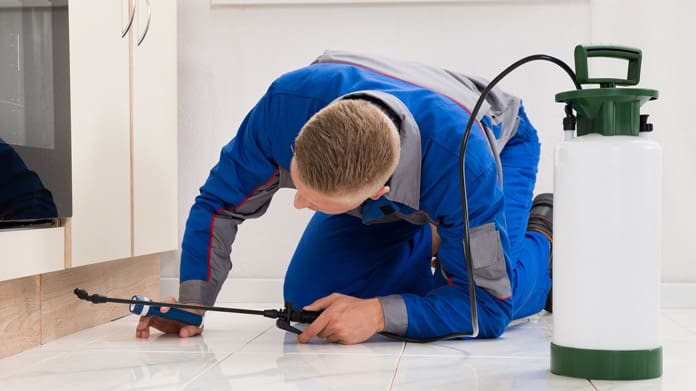
DIY pest control tips for small businesses
Regular cleaning and sanitation
Maintaining a clean and sanitary environment is the first line of defense against pests. Regularly clean and disinfect work areas, storage spaces, and communal areas. Pay attention to areas prone to spills or food debris, as these can attract pests.
Seal cracks and gaps
Inspect your small business for any cracks or gaps that pests can use to enter the premises. Seal any openings in walls, floors, or windows with caulk or weatherstripping. Pay special attention to areas where utilities enter the building, as these can be common entry points for pests.
Proper waste management
Implement a proper waste management system to prevent pests from being attracted to your small business. Use sealed trash cans with lids and empty them regularly. Keep dumpster areas clean and away from the building to minimize pest activity.
Remove standing water
Standing water can attract pests like mosquitoes, flies, and rodents. Ensure that there are no leaks or areas where water accumulates in your small business premises. Promptly address any plumbing issues and regularly inspect areas prone to moisture.
Store food properly
If your small business handles or stores food, proper food storage is essential to prevent infestations. Store food in sealed containers and regularly inspect for signs of pests. Avoid leaving out food overnight and implement a first-in, first-out storage system to minimize the risk of pests.
Use natural pest repellents
Consider using natural pest repellents in your small business. Essential oils like peppermint, lavender, or eucalyptus can help repel certain pests. Place cotton balls soaked with essential oils or use pest repellent sachets in areas prone to pest activity.
Trim vegetation around the premises
Overgrown vegetation can provide shelter for pests and create easy access points to your small business. Regularly trim shrubs, trees, and other vegetation near the building to minimize pest activity. Keep a clear perimeter to deter pests from entering.
When to hire a professional pest control service?
Persistent infestations
If your small business has experienced repeated pest infestations, despite your best efforts, it may be time to call in professional help. Professional pest control services have the expertise and resources to effectively eliminate pests and prevent future infestations.
Complex pest problems
Some pest infestations can be particularly challenging to tackle on your own. For example, a widespread rodent problem or a large termite colony may require specialized equipment and techniques to eradicate. Professionals have the knowledge and tools to handle complex pest problems.
High-risk industries
Certain industries, such as food manufacturing or healthcare, have strict regulations when it comes to pest control. Hiring a professional pest control service ensures that these businesses comply with industry-specific regulations and maintain a pest-free environment.
Lack of expertise
While some DIY pest control measures can be effective, there are instances where professional expertise is necessary. If you are uncertain about the type of pest you are dealing with or the most appropriate treatment method, it is best to consult with a professional.
Limited time and resources
Managing a small business can be time-consuming, and pest control may not be a priority. If you lack the time, resources, or knowledge to effectively handle pest control on your own, outsourcing the task to professionals can provide peace of mind.
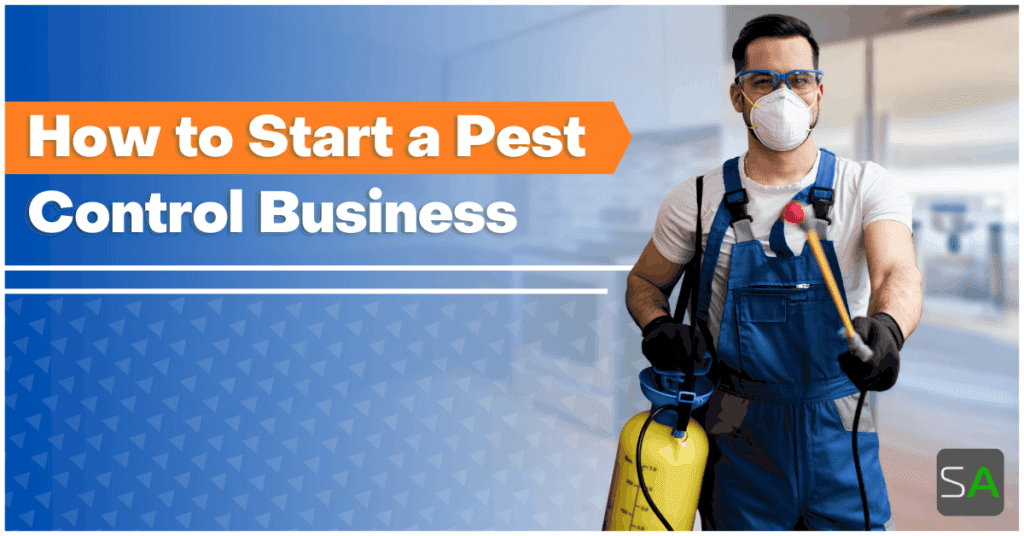
Choosing the right pest control service for small businesses
Licensed and certified
When selecting a pest control service for your small business, ensure that they are licensed and certified by the appropriate regulatory bodies. This ensures that they adhere to industry standards and have the necessary qualifications to handle pest control effectively.
Experience and expertise
Look for pest control companies with a proven track record and extensive experience in dealing with pests in small businesses. An experienced pest control provider will have the knowledge and expertise to identify, treat, and prevent various types of pest infestations.
Eco-friendly and safe methods
Consider pest control services that prioritize environmentally friendly and safe methods. Ask about the products they use and whether they offer alternative non-toxic solutions. This is particularly important if your small business operates in an industry with strict regulations regarding chemical usage.
Integrated Pest Management (IPM) approach
A reputable pest control company should follow an Integrated Pest Management approach. This involves assessing the pest problem, implementing preventive measures, using targeted treatments, and regularly monitoring the situation. An IPM approach is comprehensive and aims to minimize the use of chemicals.
Reputation and testimonials
Research the reputation of different pest control services by reading reviews and testimonials from past clients. Look for companies with positive feedback regarding their professionalism, effectiveness, and customer service. A reliable pest control service should have a good reputation within the industry.
Flexible and customized solutions
Each small business may have unique pest control needs. Look for a pest control service that offers flexible and customized solutions tailored to your specific requirements. A company that takes the time to understand your business and develop a personalized pest control plan is likely to provide more effective results.
Affordable pricing
Consider the pricing structure of different pest control services and compare them to your budget. Keep in mind that the cheapest option may not always be the best. Look for a balance between affordability and quality of service to get the most value for your investment.
Benefits of outsourcing pest control for small businesses
Save time and resources
Outsourcing pest control allows small businesses to focus on their core operations without having to allocate time and resources to pest management. Professional exterminators handle the entire process, from pest inspections and treatments to ongoing monitoring and preventive measures.
Expertise and knowledge
Professional pest control technicians have the expertise and knowledge to identify different types of pests, their behaviors, and the most effective treatment methods. They stay updated on the latest pest control techniques and are equipped with specialized tools to handle various infestations.
Minimize health risks
Pest control involves handling potentially harmful chemicals or traps. By outsourcing pest control, small business owners can minimize the associated health risks to themselves, their employees, and their customers. Professionals are trained in the safe and proper use of pest control products.
Long-term cost savings
While outsourcing pest control may require an upfront investment, it can lead to long-term cost savings. Effective pest control measures prevent infestations from causing extensive damage that would require expensive repairs or renovations. Regular preventive maintenance can also minimize the risk of future infestations.
Compliance with regulations
By outsourcing pest control to professionals, small businesses can ensure compliance with industry-specific regulations and health department requirements. Professional exterminators are familiar with the standards and guidelines set by regulatory authorities and can help businesses meet these requirements.
Peace of mind
Knowing that your small business is protected from pests by professionals provides peace of mind. Small business owners can focus on running their operations without the worry and stress of dealing with pest infestations. Professional pest control services provide reassurance that the premises are free from pests.
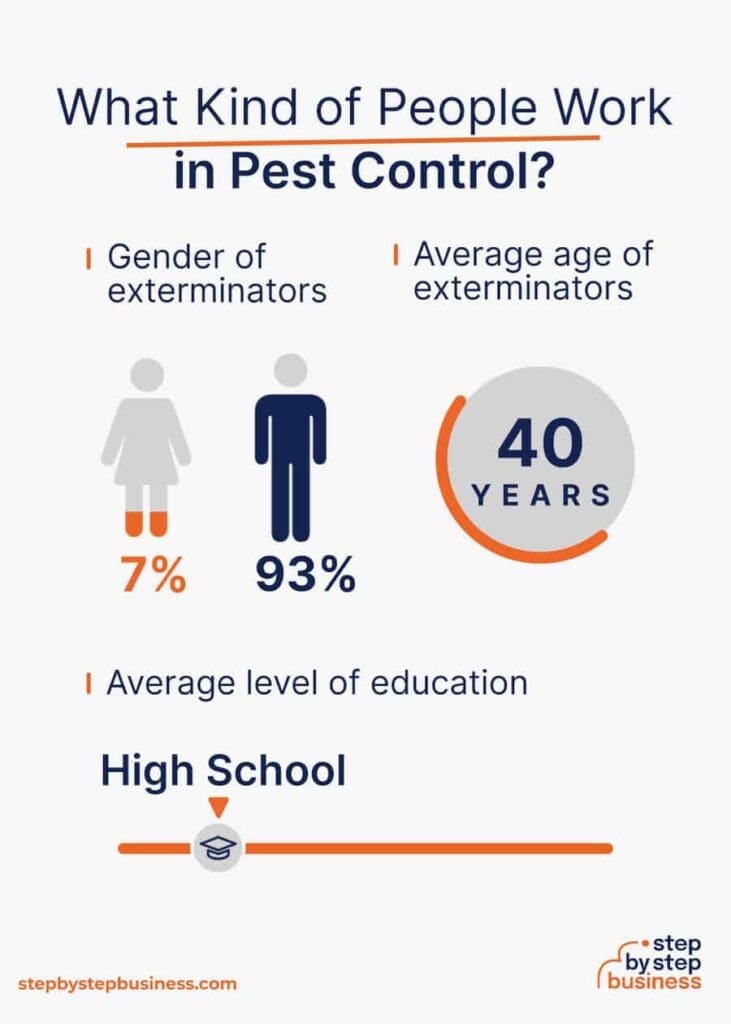
Pest control maintenance tips for small businesses
Routine inspections
Schedule regular pest inspections to identify any signs of pest activity or vulnerabilities in your small business premises. Early detection allows for prompt treatment and prevention of infestations.
Regular pest monitoring
Implement a system to regularly monitor pest activity in your small business. This can include traps, baits, or monitoring stations placed strategically to detect any signs of pests. Monitoring helps identify pest hotspots and enables proactive measures to be taken.
Sealing entry points
Continuously monitor and seal any cracks, gaps, or openings that pests can use to enter your small business. Regularly inspect doors, windows, vents, plumbing, and utility entry points for potential entryways and seal them appropriately.
Proper waste disposal
Ensure that your small business has proper waste disposal practices in place. Empty trash cans regularly, clean dumpster areas, and dispose of waste in sealed containers. Avoid leaving out food waste overnight, as this can attract pests.
Employee education and training
Educate employees about pest prevention and the importance of cleanliness and hygiene in the workplace. Train staff on how to identify signs of pests and the appropriate actions to take if pests are detected. Encourage employees to report any pest sightings promptly.
Maintaining cleanliness and hygiene
Regularly clean and sanitize your small business premises to maintain a pest-free environment. Pay attention to areas prone to spills, food debris, or moisture, as these attract pests. Implement cleaning schedules and assign responsibilities to ensure regular maintenance.
Importance of pest control documentation for small businesses
Legal and regulatory requirements
Many jurisdictions require small businesses to maintain pest control documentation as part of their compliance with health and safety regulations. These records serve as evidence that the business has implemented pest control measures to prevent infestations.
Proof of compliance
Pest control documentation provides proof that your small business is taking appropriate measures to prevent and control pests. Proof of compliance can be important in case of health inspections, audits, or legal disputes.
Record-keeping for audits
Keeping detailed pest control records can help small businesses during audits or inspections. Maintaining a history of pest control activities, including inspections, treatments, and preventive measures, demonstrates due diligence and a commitment to maintaining a pest-free environment.
Insurance and liability coverage
Some insurance providers may require small businesses to provide pest control documentation to ensure coverage. This documentation can help mitigate liability in case of pest-related incidents, such as customer complaints or property damage.
Tracking effectiveness of pest control measures
Regularly documenting pest control activities allows small businesses to track the effectiveness of their pest management efforts. This information can help identify trends, evaluate the success of treatments, and make necessary adjustments to future pest control plans.
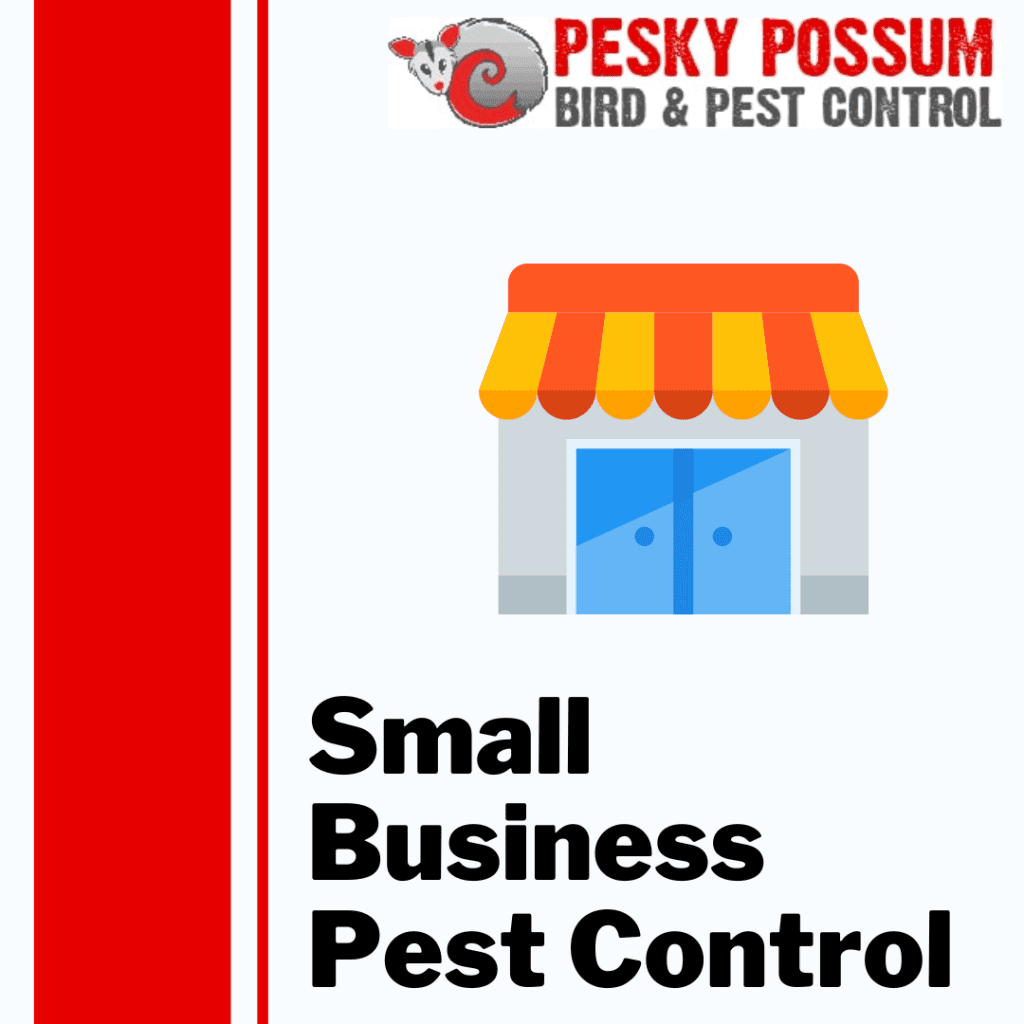
Common mistakes to avoid in small business pest control
Ignoring early signs of infestation
Ignoring or downplaying early signs of pest infestation can lead to more significant problems down the line. Promptly address any signs of pests, such as droppings, chewed wires, or pest sightings, to prevent infestations from spreading.
Inconsistent pest control measures
Consistency is key when it comes to pest control. Implementing sporadic or inconsistent pest control measures can allow pests to multiply and infest your small business. Develop a comprehensive pest control plan and follow it consistently.
Incomplete treatment
Completing only a partial treatment for a pest infestation can lead to recurrence and further spread of pests. Ensure that any treatments, such as insecticide applications or trapping, are carried out thoroughly and according to professional advice.
Using harmful chemicals without precautions
If you choose to use chemical-based pest control products, it is important to follow safety precautions. Using these products without proper protective gear or inappropriately can pose health risks to yourself and others in the vicinity. Read and follow the instructions provided by the manufacturer.
Failure to address root causes
Simply treating the symptoms of a pest infestation without addressing the underlying causes can result in recurring problems. Identify and address the root causes of pest infestations, such as poor sanitation, entry points, or attractants, to prevent future infestations.
Conclusion
Effective pest control is crucial for small businesses to maintain a clean and safe environment, protect their reputation, and comply with health and safety regulations. While some DIY measures can be useful, outsourcing pest control to professionals offers numerous benefits, including expertise, time savings, and long-term cost savings. By implementing preventive measures, following proper sanitation practices, and regularly monitoring for pests, small businesses can effectively manage and prevent pest infestations. Additionally, maintaining detailed pest control documentation ensures compliance, provides proof of preventative measures, and helps track the effectiveness of pest control efforts. Avoiding common mistakes and addressing pest problems promptly and comprehensively will contribute to a pest-free and successful small business.

I am Randy, the author behind PestControld.com. Drawing from decades of experience, I aim to provide valuable insights, expert advice, and practical recommendations to help you make informed decisions when assessing viable pest control solutions.